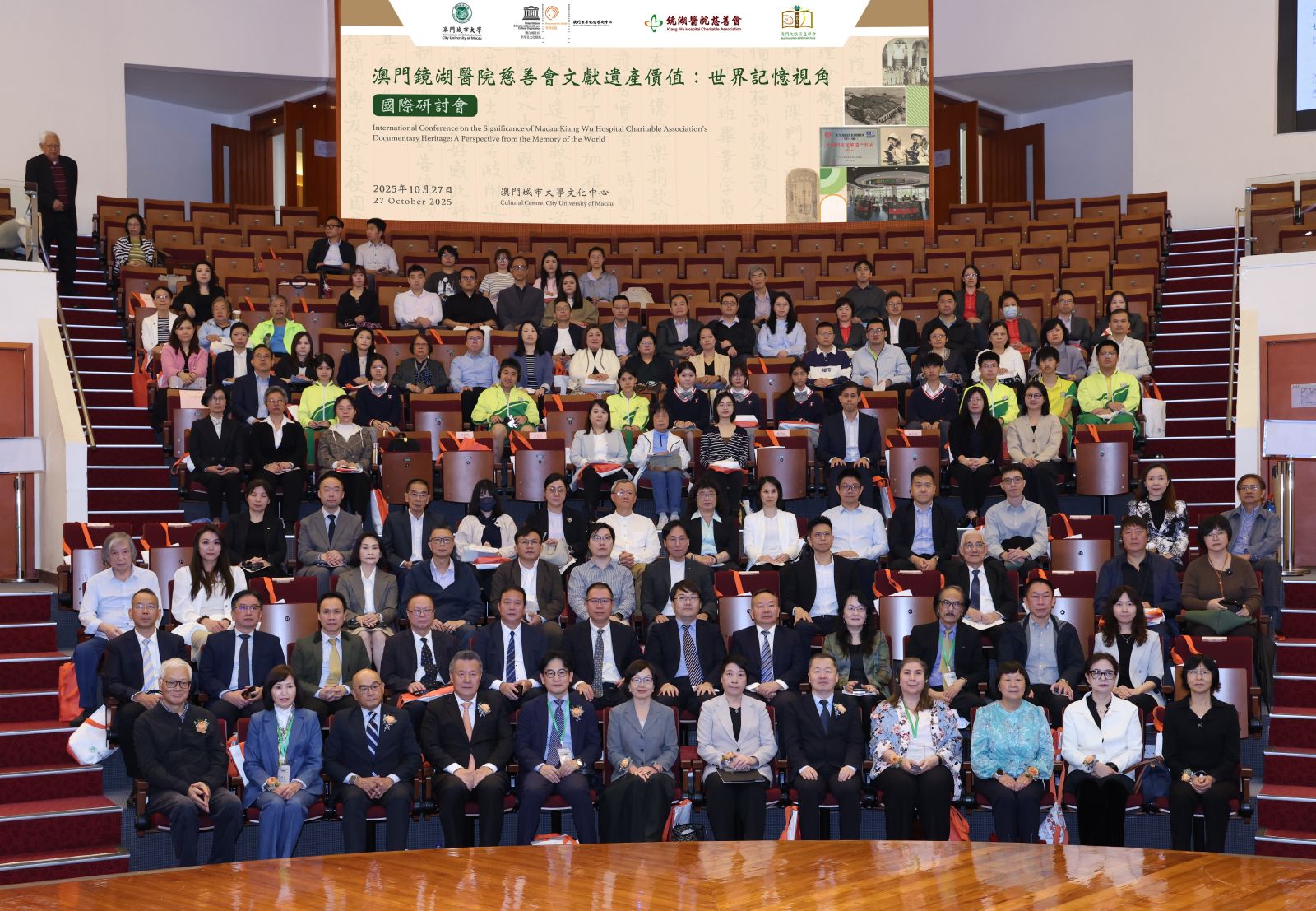
International Conference on the Significance of Macau Kiang Wu Hospital Charitable Association’s Documentary Heritage: A Perspective from the Memory of the World, jointly organized by City University of Macau Memory of the World Knowledge Centre--Macau, Kiang Wu Hospital Charitable Association and Macau Documentation and Information Society, was held at Cultural Centre at 9:30 am on 27 October 2025. Distinguished guests including Ms. Hongmin WANG, Senior Inspector of the National Archives Administration of China, Ms. Wai Man LEONG, Director of the Cultural Affairs Bureau, Mr. Chok Man CHEONG, Director of Direcção dos Serviços de Estudo de Políticas e Desenvolvimento Regional, Mr. Huijie WANG, Division Director of Department of Publicity and Culture of the Liaison Office of the Central People’s Government in the Macao SAR, Dr. Kwibae KIM, Chair of UNESCO Memory of the World Regional Committee for Asia and the Pacific, Mr. Imam GUNARTO, Vice-Chairperson of UNESCO Memory of the World Committee for Asia and the Pacific, Dr. Nada ITANI, Member of (International) Register Subcommittee, UNESCO Memory of the World Programme, Prof. Simon CHU of Hong Kong Chinese University; Rector Jun LIU, Prof. Lixian JIN, Ms. Limei SHI, University Librarian from City University of Macau including; Mr. Veng Seng LAU and Ms. Pui Kun UNG, President and Vice President of Board of Directors of Kiang Wu Hospital Charitable Association; Dr. Helen IEONG, Prof. Degang YIN and Ms. Emily CHAN from Macau Documentation and Information Society, as well as 120 guests from Macao religious groups, academic institutions, heritage associations, libraries, archives, and schools attended the conference.
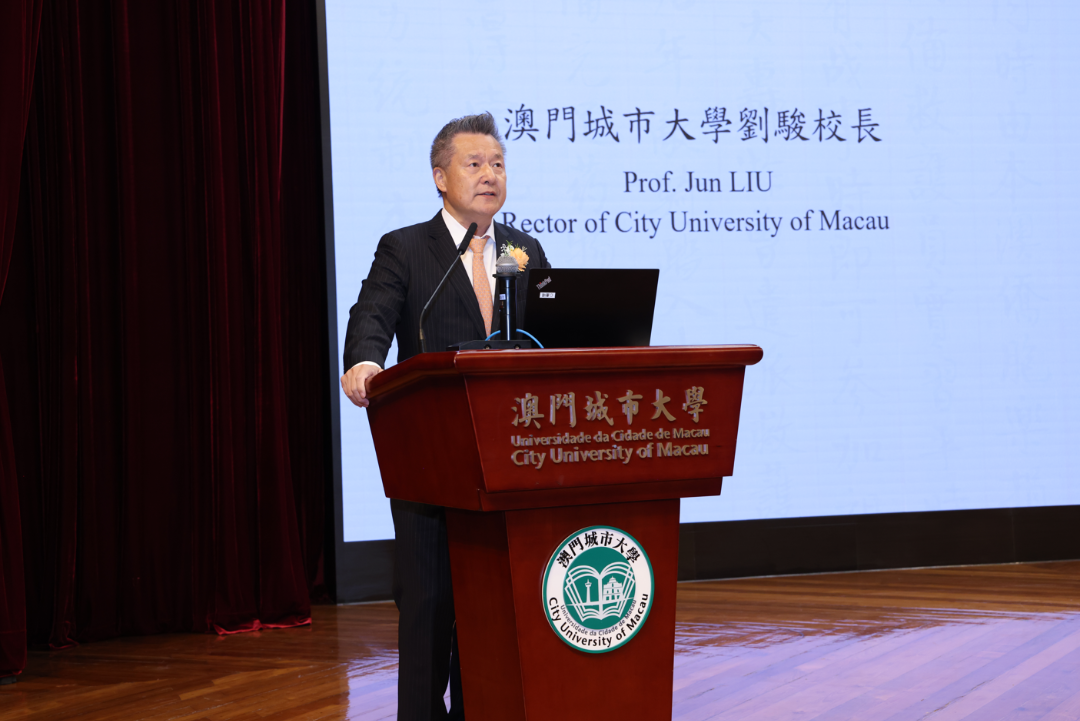
The ceremony began with the welcome speech by Rector Jun LIU. He extended his congratulations on the inscription of the "Archives and Manuscripts of Macau Kiang Wu Hospital Charitable Association (1857-1961)" into the sixth batch of entries of China Archive and Document Heritage List, which was also the national register for UNESCO Memory of the World. He stated that the mission of Memory of the World Knowledge Centre--Macau was to foster the education and research of Memory of the World Programme in Macau and neighbouring area. Since next year marked the 45th anniversary of City University of Macau and the 10th anniversary of the establishment of the Macau Centre, the university would further strengthen international communications, promote educational and research cooperation, and foster synergistic development with world heritage and intangible cultural heritage programmes.
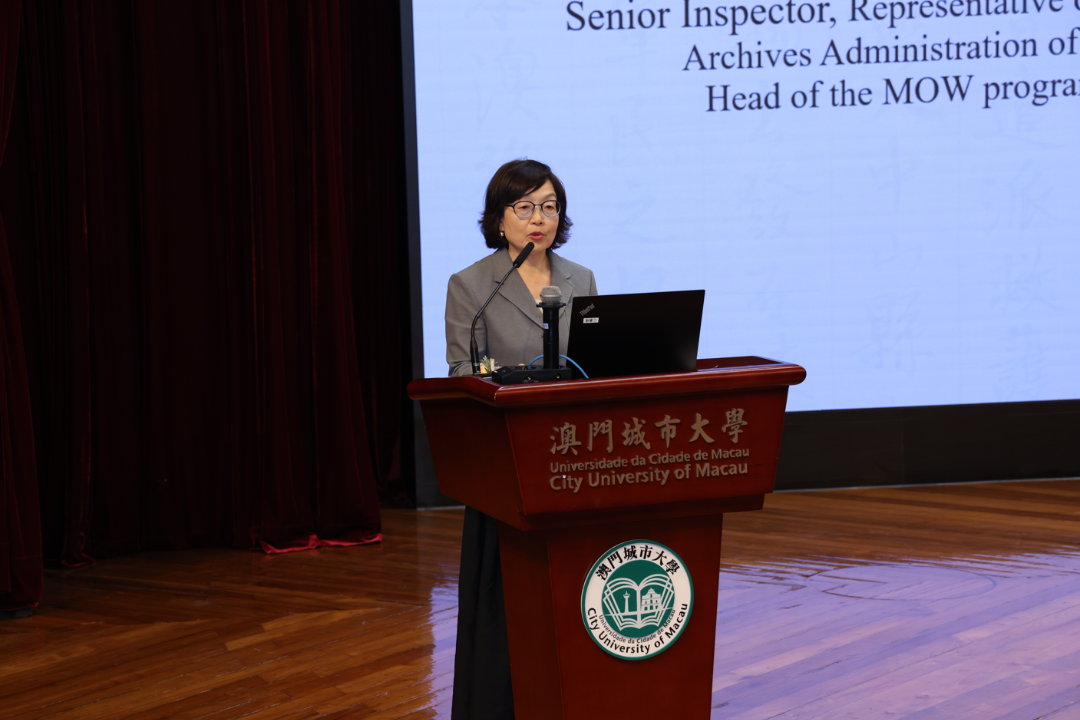
Senior Inspector Ms. Hongmin WANG expressed China's continued support and participation in the UNESCO Memory of the World Programme since the 1990s. As an integral part of the Memory of the World Programme, the National Archives Administration of China launched the China Archive and Document Heritage Programme in 2000, aiming to discover archival documents, to protect archival heritage, to inherit traditional culture, to promote and cultivate national spirit, and to raise public awareness of archives. She then introduced that China currently had 17 items listed in the Asia-Pacific Regional Register and 18 in the International Register. She affirmed the Kiang Wu Hospital Charitable Association's achievements in the protection and inheritance of its own historical culture, and was looking forward to receiving applications for the China Archive and Document Heritage List from organizations in Macau SAR to further promote the preservation of archival records.
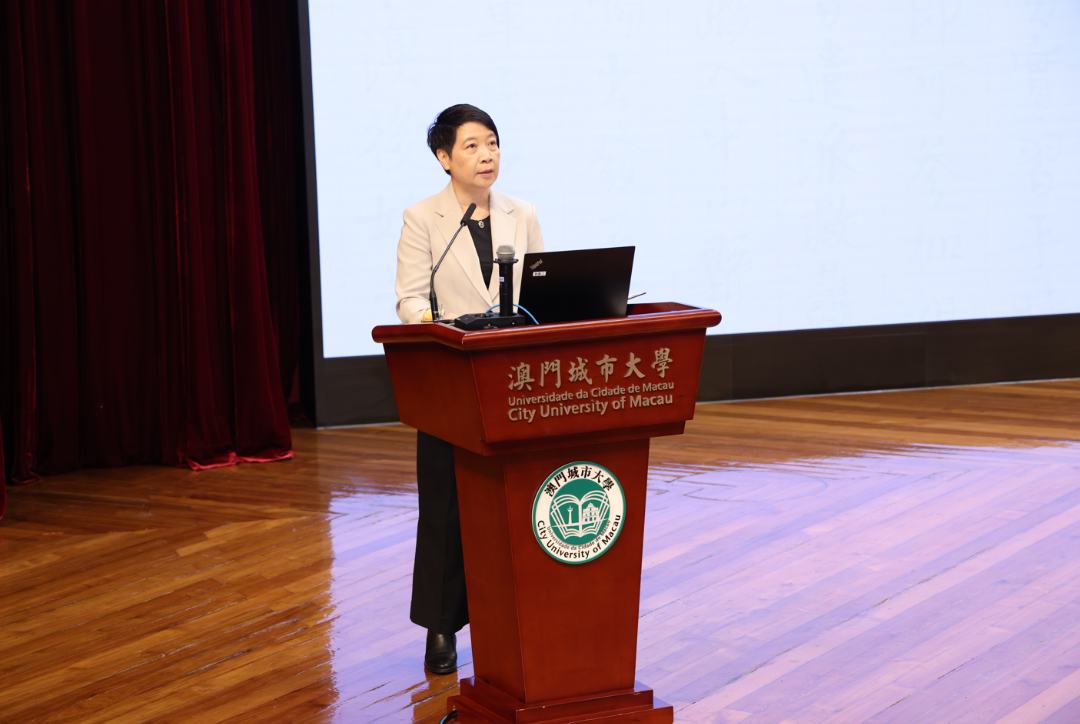
In her remarks, Director Wai Man LEONG stated that Kiang Wu Hospital received two national honors this year, including the inscription of archival documents in the China Archive and Document Heritage List, with the opportunity to submit nominations for the Memory of the World Asia-Pacific Regional Register, and the inclusion of the Kiang Wu Hospital History Heritage Museum in the National Memorial Facilities of the Anti-Japanese Aggression War. These two achievements not only highlighted the important position of Kiang Wu Hospital in the historical development of Macao, but also reflected Macao's positive role in promoting cultural integration, gender equality, and humanitarian causes, and had profound significance for Macao's role as a window for dialogue between Chinese and Western civilizations.
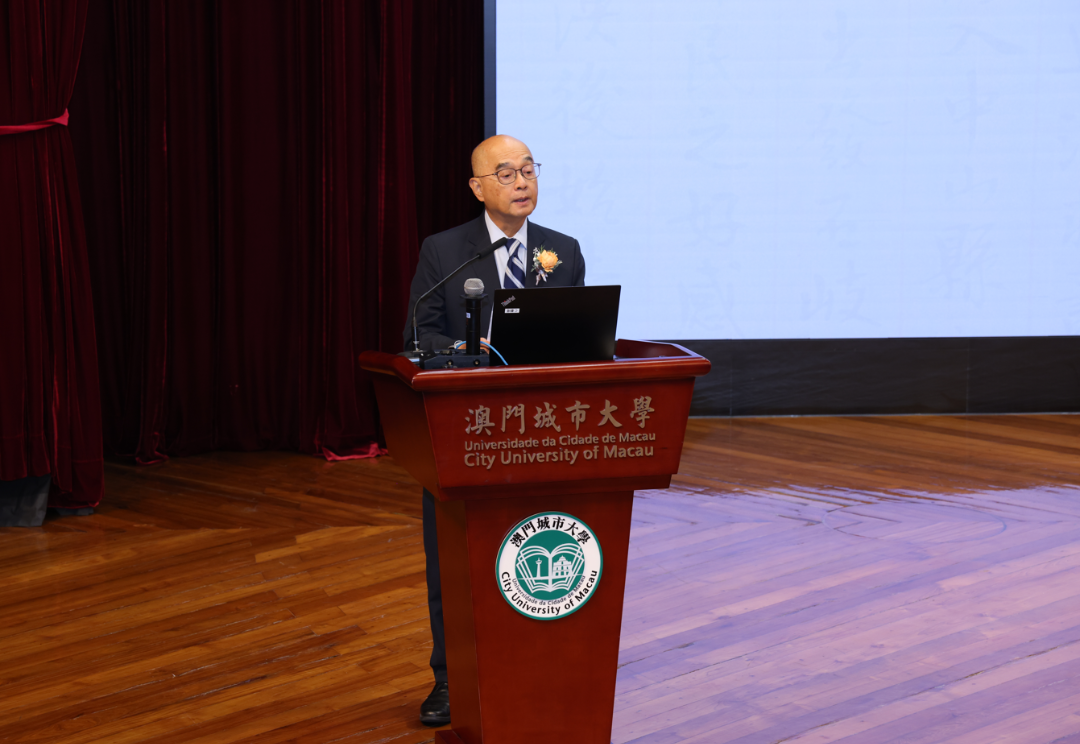
Mr. Veng Seng LAU, President of Board of Directors of Kiang Wu Hospital Charitable Association, believed that the inscription of "Archives and Manuscripts of Macau Kiang Wu Hospital Charitable Association (1857-1961)" in the China Archive and Document Heritage List, especially as it marked the first time Macao had its collections listed in the national register of UNESCO Memory of the World, demonstrated authenticity, uniqueness, and global significance of the collection. He hoped that this conference would better promote the global significance of Macao's documentary heritage, strengthen international exchanges and polish Macao's "Golden Business Card" as a cultural hub, contributing to the protection of documentary heritage and international cooperation.
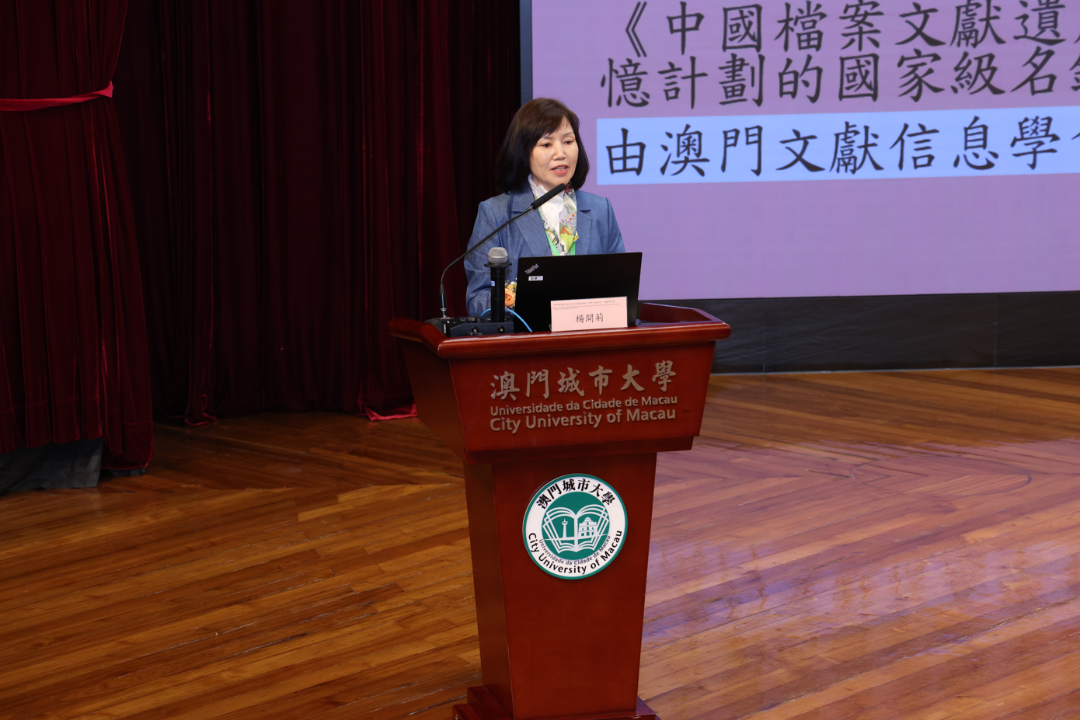
Dr. Helen IEONG introuduced the documentary heritage of the Kiang Wu Hospital Charitable Association archives at the opening ceremony. The collection with 5,400 items spanned from 1857 to 1961 highlighted the major contributions of the association from the late Qing dynasty to the establishment of the People's Republic of China, especially towards the combination of Chinese and western medicine, gender equality, humanitarianism, the role of "red merchants" as well as the connection among Macao, Asia-Pacific region and international society. The collection, with such uniqueness and universal value, deserved the inscription and showed the rich cultural sophistication of Macao.
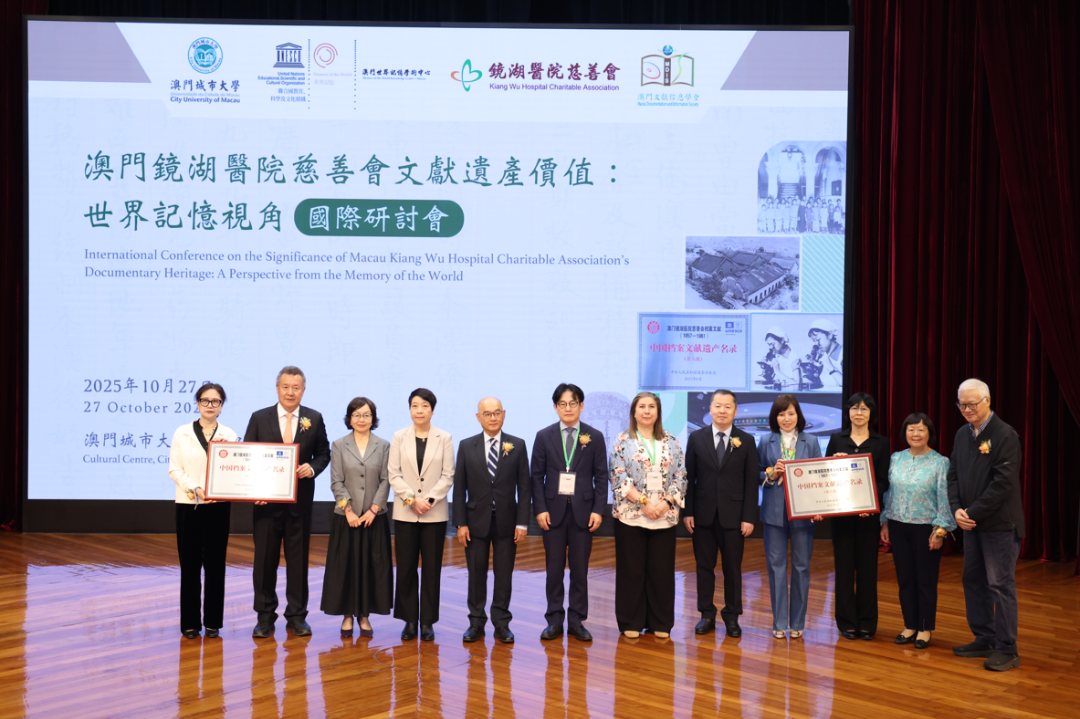
Witnessed by Mr. Huijie WANG, Ms. Wai Man LEONG, Dr. Kwibae KIM, Dr. Nada ITANI, Mr. Veng Seng LAU and Ms. Pui Kun UNG, Senior Inspector Ms. Hongmin WANG presented certificates to Rector Jun LIU, Ms. Limei SHI as well as Dr. Helen IEONG, Prof. Degang YIN and Ms. Emily CHAN for the inscription of "Archives and Manuscripts of Macau Kiang Wu Hospital Charitable Association (1857-1961)" into the China Archive and Document Heritage List.
.png)
Then, a ribbon-cutting ceremony was held by the officiating guest, kicking off the new journey for the protection and research of Macao's documentary heritage.
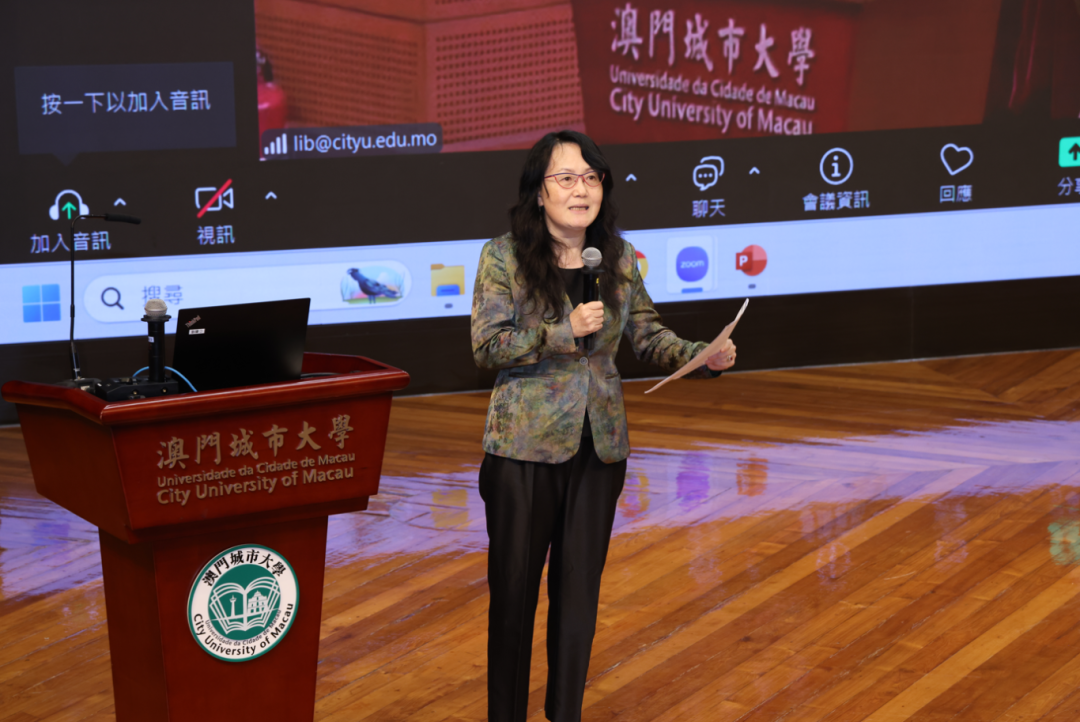
The conference was moderated by Prof. Lixian JIN, Dean of Faculty of Humanities and Social Sciences, City University of Macau as guests commented on the protection and practice of the Memory of the World Programme from the national, regional and international perspectives.
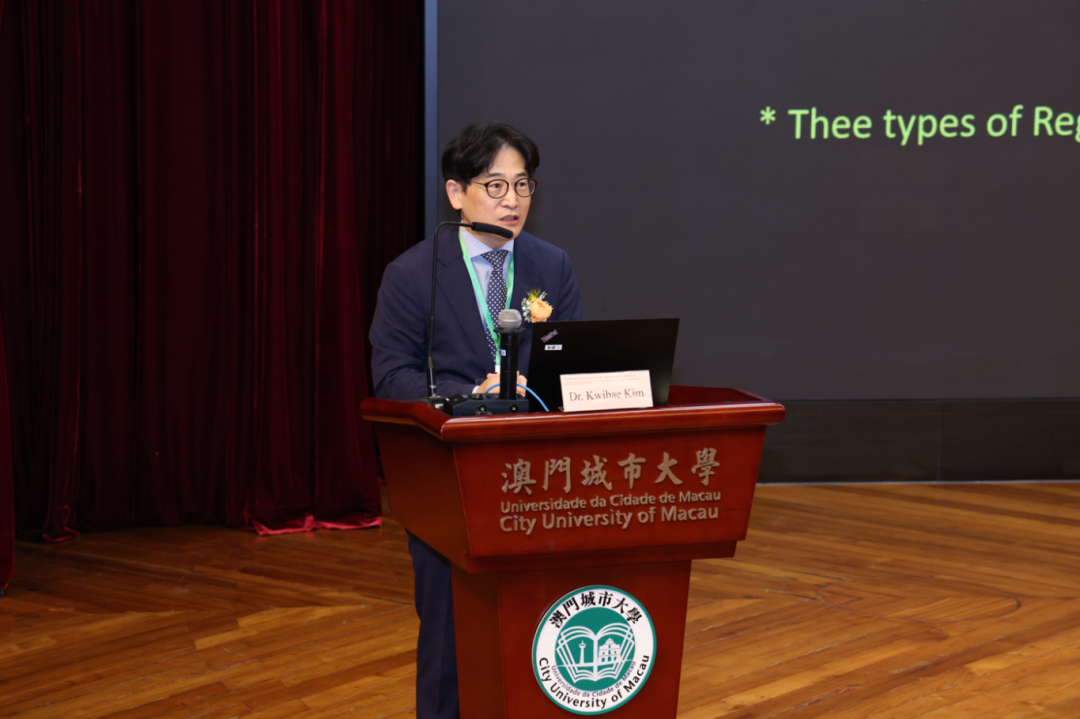
Dr. Kwibae KIM began his presentation by introducing the Memory of the World Programme launched by UNESCO in 1992. He stated that by safeguarding endangered documentary heritage, a total of 570 collections of humankind's shared memory were preserved. UNESCO Memory of the World Regional Committee for Asia and the Pacific had 45 members states and provided assistance in digitalization and nomination through trainings, grants, regional register and cooperation. He emphasized that inclusion in the register is both an honor and a responsibility that upheld protection, promotion, and open access.
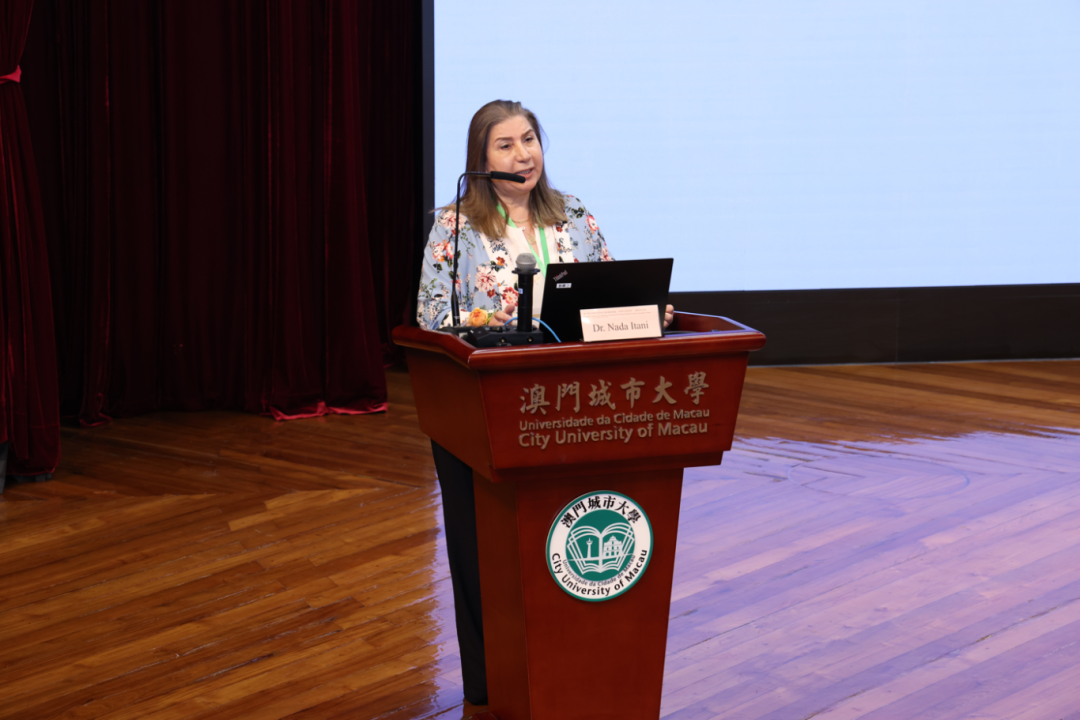
Dr. Nada ITANI shared the allure and challenges of the Memory of the World Programmes, including filling a complex nomination form, high demand in resources and technical requirements, political issues, transnational coordination, nomination quota, review process, etc. However, entries of nominated archives provide long-term benefits such as global prestige, conservation funding, policy attentions, value addition in research and education, special protection during disasters and enhancing cultural identity. She called for early initiation, collaboration with experts, emphasis on the universal value and effective use of national and regional channels to increase success rates.
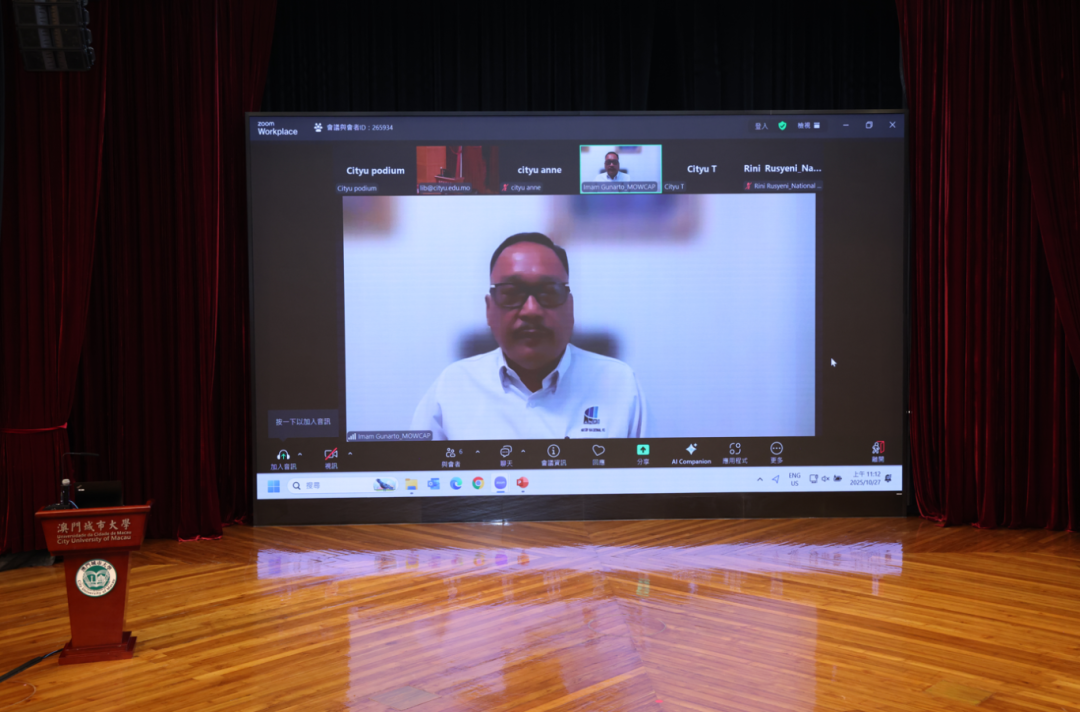
Mr. Imam Gunarto introduced the "National Memory - World Memory" collaborative governance frame work in Indonesia online which leveraged Indonesia's rich documentary heritage—comprising 38 national register, 16 international register and 5 MOWCAP regional register—through multi-party partnerships involving government ministries, archives, academic communities, foundations, and civil society, and resulted in successful nomination, including the Rehabilitation Centrum of Soeharso Archives, Herbarium Temulawak Archives - Manuscripts, The Archives of Indonesia’s Malaria Elimination Journey (1900–2023), and the Archives of Batik Trading Network 1870-1992. He also pointed out the challenges of preservation and promotion posed by Indonesia's vast territory, climate disasters, educational disparities, and generational gaps, and urged for an open, collaborative, fact-checking, and incremental approach to continuously expand the coverage and impact of Memory of the World Programmes in Indonesia.
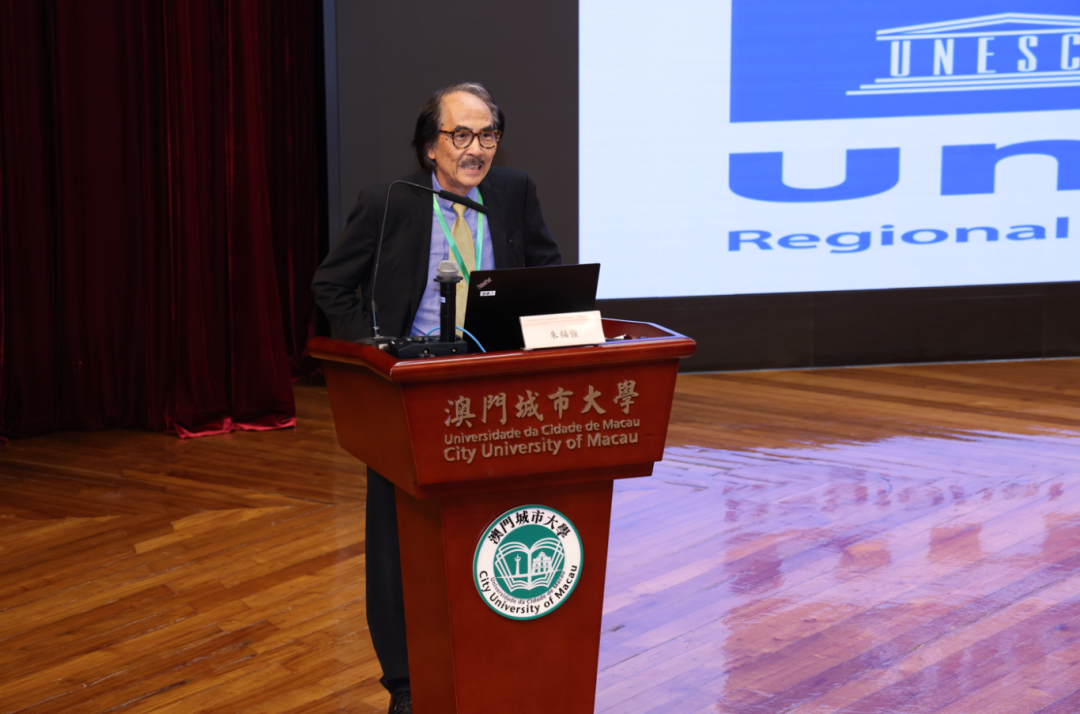
Despite successful inscription of 85 documentary heritages on the regional register and 27 elevated to the international register, Prof. Simon CHU pointed out the challenges faced by the Memory of the World Programmes, including the marginalization, lack of resources, and the politicization issues caused by some member states' demands to veto sensitive nominations since 2017. As a result, new guidelines released in 2021 removed some key provisions that embraced the value of expert-driven approach, neutral narrative in history, creating more obstacles for the preservation and sharing objectives of the Memory of the World Programmes.
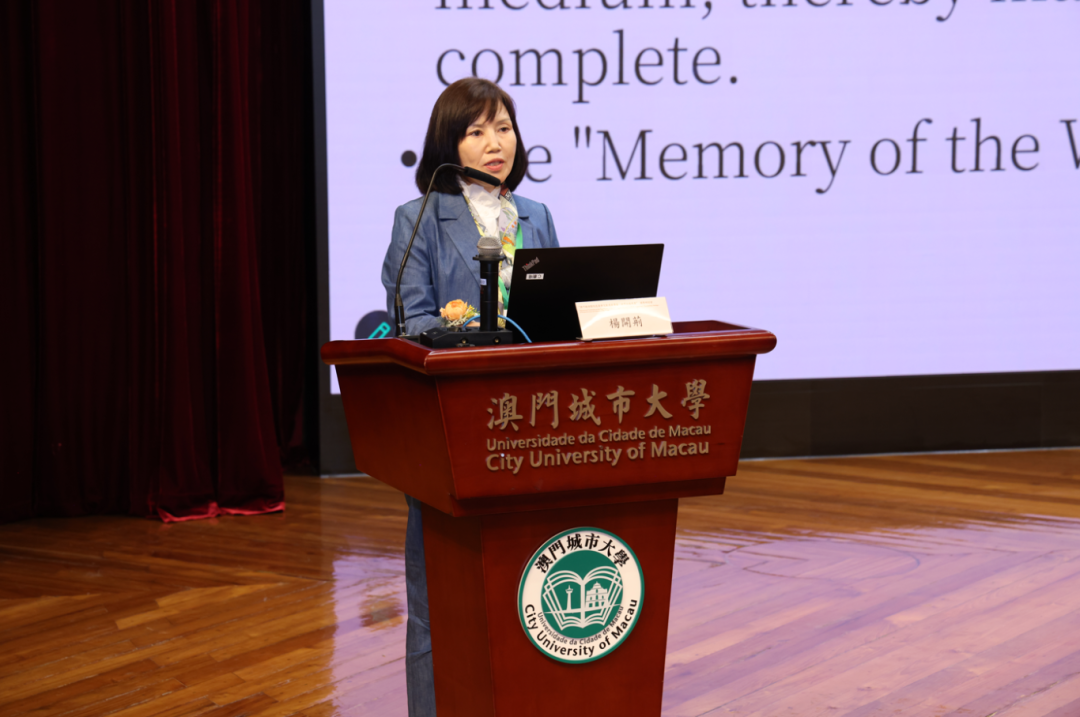
Dr. Helen IEONG provided an overview of the "Archives and Manuscripts of Macau Kiang Wu Hospital Charitable Association (1857-1961)" which bore authencity, rarity and universal value. The collection reflected not only the pioneering work on combining Chinese and Western medicine by Dr. Sun Yat-sen, but also the significant contribution of the association on improving status of women by establishing nursing school in 1923, sheltering international refugees during the World War II, promoting free education and gender equality. The collection met the requirements for the application to the Memory of the World Asia-Pacific Regional Register, as it fully presented the intercultural communication of modern medicine, education, humanitarian work in Macao, serving as a collective memory for the globe.
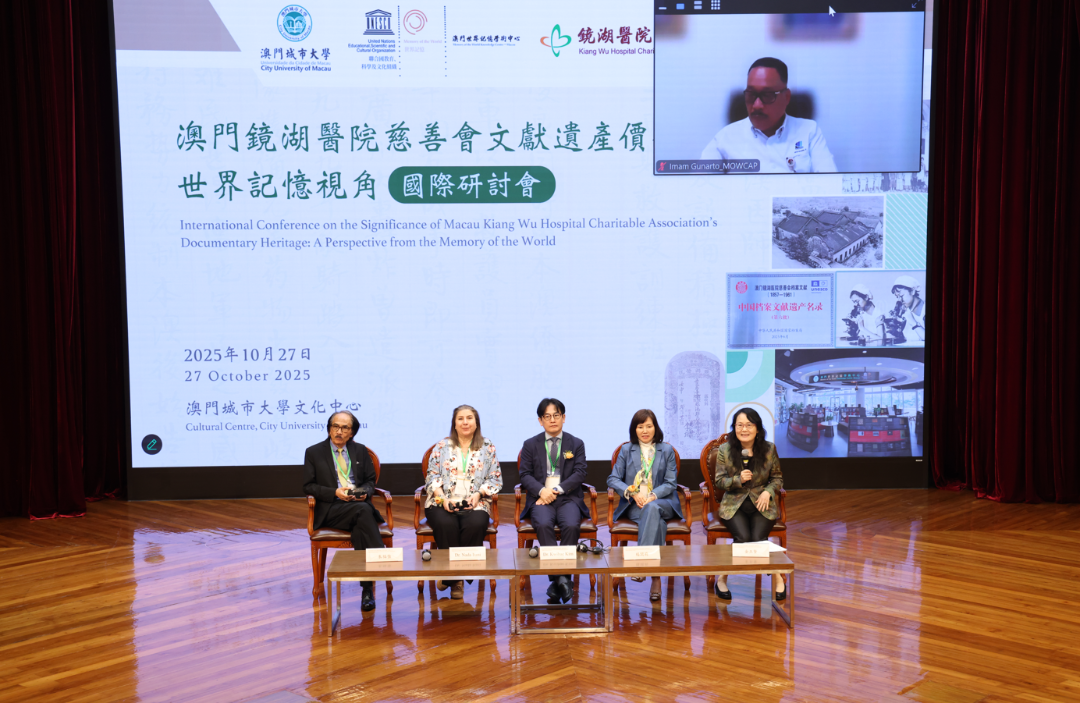
In the discussion session, participants commented on the mission of documentary heritage preservation, archievements and challenges faced by Memory of the World Asia-Pacific Regional Register, collaborative governing practices on submitting nominations, challenges and outlook for applying the international register, as well as insights into the global significance of the Kiang Wu archives, highlighting the historical and universal value of the Kiang Wu archives and further polishing Macao's "Golden Business Card".
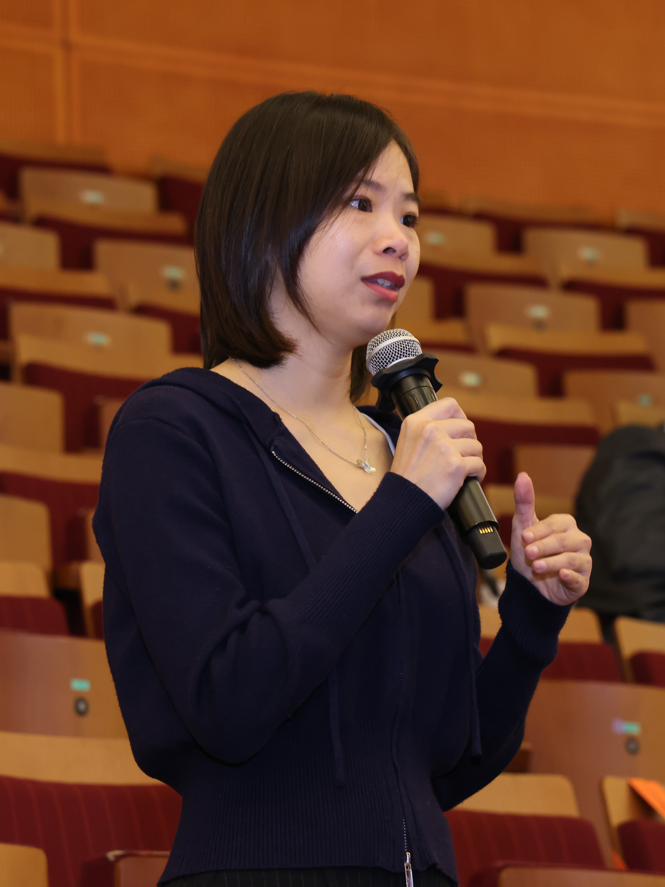 |
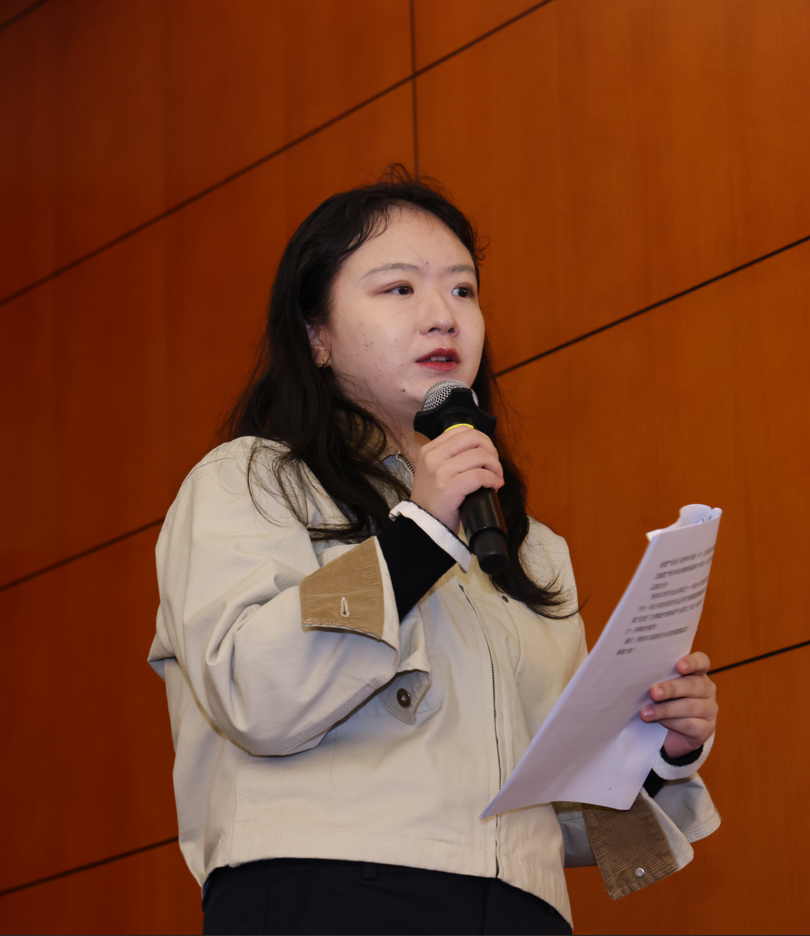 |
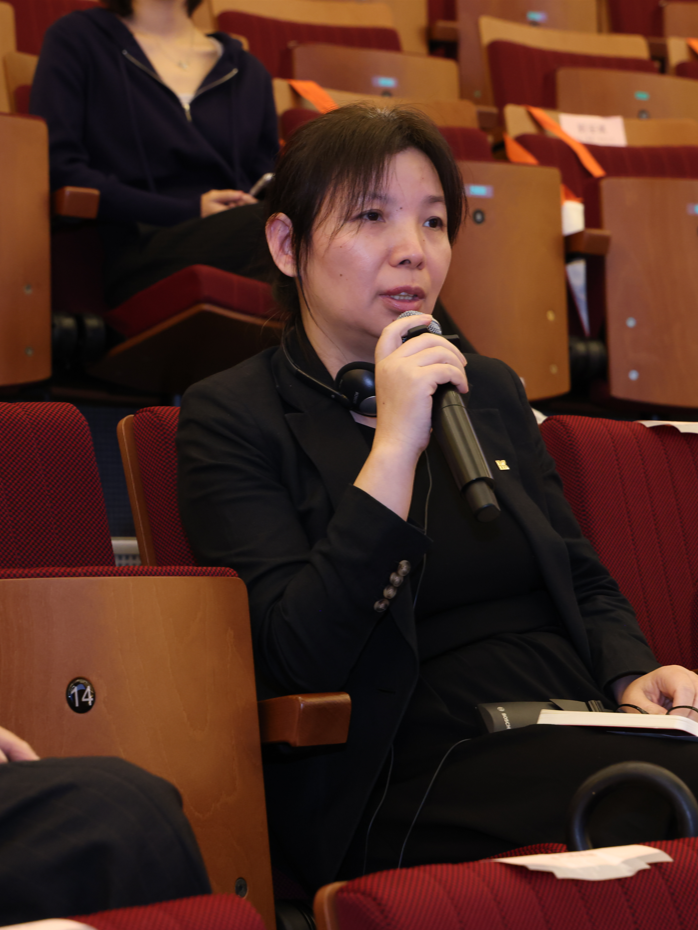 |




